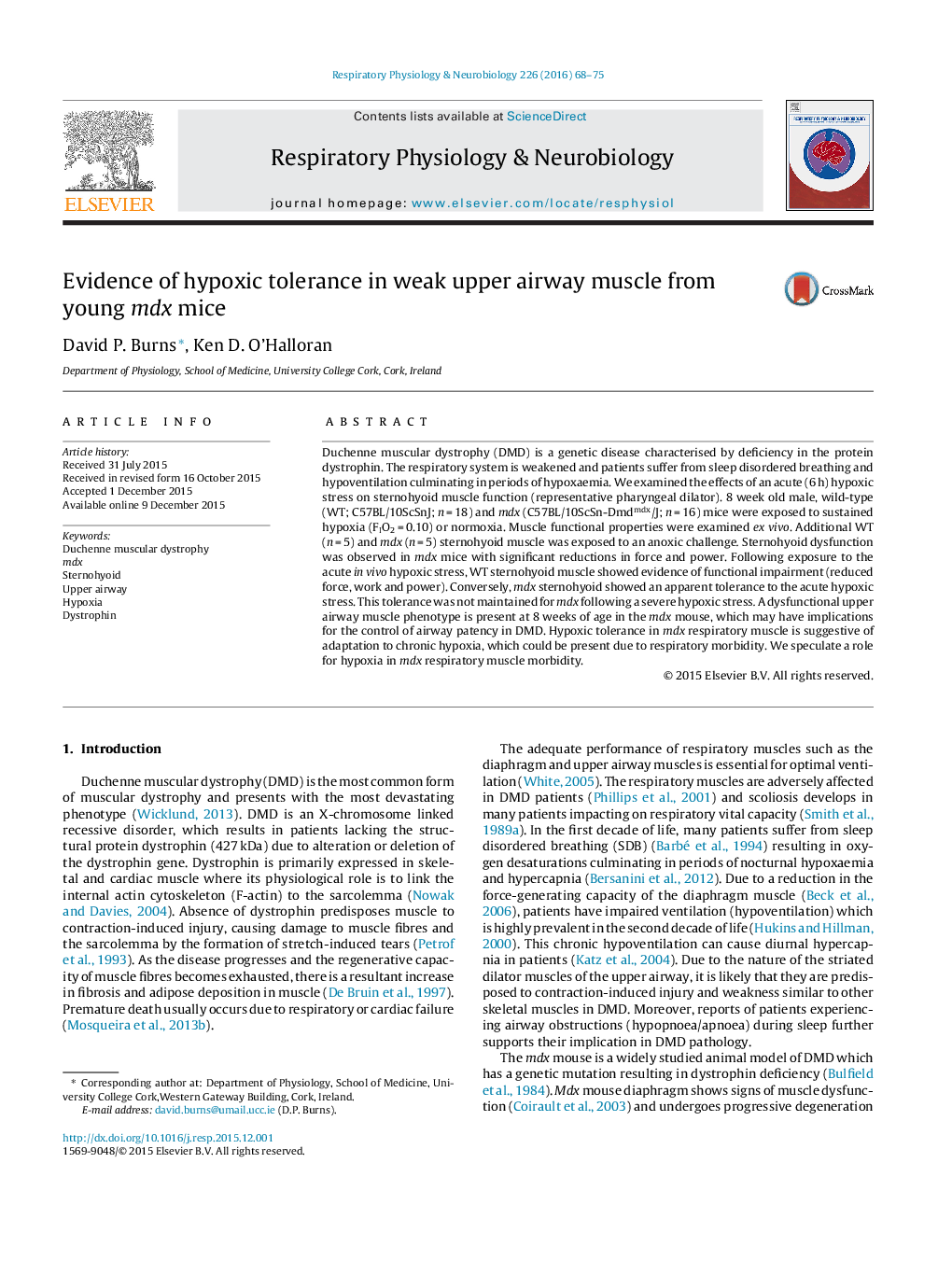| کد مقاله | کد نشریه | سال انتشار | مقاله انگلیسی | نسخه تمام متن |
|---|---|---|---|---|
| 2846716 | 1571304 | 2016 | 8 صفحه PDF | دانلود رایگان |

• A dysfunctional upper airway muscle phenotype is present at 8 weeks of age in the mdx mouse, which may have implications for the control of airway patency in DMD.
• Hypoxic tolerance in mdx respiratory muscle is suggestive of adaptation to chronic hypoxia, which could be present due to respiratory morbidity.
• We speculate a role for hypoxia in mdx respiratory muscle morbidity.
Duchenne muscular dystrophy (DMD) is a genetic disease characterised by deficiency in the protein dystrophin. The respiratory system is weakened and patients suffer from sleep disordered breathing and hypoventilation culminating in periods of hypoxaemia. We examined the effects of an acute (6 h) hypoxic stress on sternohyoid muscle function (representative pharyngeal dilator). 8 week old male, wild-type (WT; C57BL/10ScSnJ; n = 18) and mdx (C57BL/10ScSn-Dmdmdx/J; n = 16) mice were exposed to sustained hypoxia (FIO2 = 0.10) or normoxia. Muscle functional properties were examined ex vivo. Additional WT (n = 5) and mdx (n = 5) sternohyoid muscle was exposed to an anoxic challenge. Sternohyoid dysfunction was observed in mdx mice with significant reductions in force and power. Following exposure to the acute in vivo hypoxic stress, WT sternohyoid muscle showed evidence of functional impairment (reduced force, work and power). Conversely, mdx sternohyoid showed an apparent tolerance to the acute hypoxic stress. This tolerance was not maintained for mdx following a severe hypoxic stress. A dysfunctional upper airway muscle phenotype is present at 8 weeks of age in the mdx mouse, which may have implications for the control of airway patency in DMD. Hypoxic tolerance in mdx respiratory muscle is suggestive of adaptation to chronic hypoxia, which could be present due to respiratory morbidity. We speculate a role for hypoxia in mdx respiratory muscle morbidity.
Journal: Respiratory Physiology & Neurobiology - Volume 226, June 2016, Pages 68–75